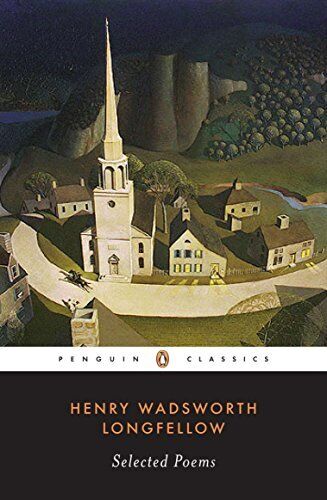
Last Christmas, I watched a movie called I Heard the Bells based on the story of Henry Wadsworth Longfellow and the events that led up to his penning the beloved Christmas poem “I Heard the Bells on Christmas Day”. Until then, I hadn’t learned much of Longfellow and had read even less. I did know he wrote a lot of long poems, so I didn’t want to invest in a large, expensive volume ’til I knew if I liked his poetry. So I purchased this little paperback from Penguin Classics. Some of the poems included are “Evangeline”, “The Courtship of Miles Standish”, “A Psalm of Life”, and “The Village Blacksmith”.
The introduction is by Lawrence Buell. I’ve only read part of the introduction so far, but I learned so much about Longfellow that I can’t wait to read his poems. Did you know that he was a master of five languages: English, French, Spanish, Italian, and German? And he could read in six more. He taught at Harvard until he decided to write poetry as his profession; he was the first American poet to do so. He lost two wives – the first after a miscarriage in Europe, the second in an accident when her dress caught fire. Longfellow knew deep love and deeper sorrow. I am really looking forward to reading these poems. Though, as with all poetry, I will have to read it slowly. Poetry, you see, should be read in small portions, both so you can take the whole meaning of a poem in to ponder and so you don’t get discouraged by misunderstanding.
Have you read any poems by Henry Wadsworth Longfellow? I would love to know which ones you like so I can read them too.
